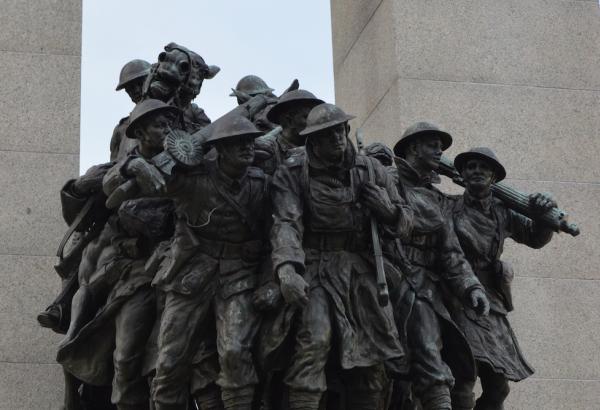A time of remembrance, and forgetting
Former Canadian diplomat Daryl Copeland reflects on Canada’s once proud tradition of global engagement (“A time of remembrance, and forgetting,” Embassy Magazine, 19 November 2014). Taking as his point of departure two significant commemorations—the 25th anniversary of the fall of the Berlin Wall on November 9th and Remembrance Day on November 11th—he examines the changed nature of Canada’s global engagement:
Peacekeeping has given way to war fighting—in Afghanistan, Libya and now Iraq—as the cornerstone of Canadian defence policy.
Development assistance, savaged by years of budgetary compression and bureaucratic upheaval, has fallen sharply to .27 per cent of gross national income in 2013, leaving Canada near the bottom of the OECD barrel.
Environmental activism was for decades a hallmark of Canadian internationalism. More recently, Canada has been the recipient of five Fossil of the Year awards and is best known as an advocate of heavy oil production and pipeline construction.
Human security initiatives defined Canadian foreign policy for about a decade beginning in 1995. Remember the landmine ban, International Criminal Court, conflict diamonds, child soldiers, Responsibility to Protect, and efforts to control the trade in small arms?
Multilateralism, and support for the UN in particular, allowed Canada to play an oversize global role during the second half of the 20th century.
Today little remains of our reputation as an honest broker and helpful fixer, ready to provide innovative policy advice in support of progressive programs and enlightened governance.
This country’s martial makeover has been widely noticed elsewhere, leaving our image blurred and influence eroded.
Read the full article here (available to subscribers only).
Photo credits: above: Embassy photo/Kristen Shane; cover: Jamie in Bytown
